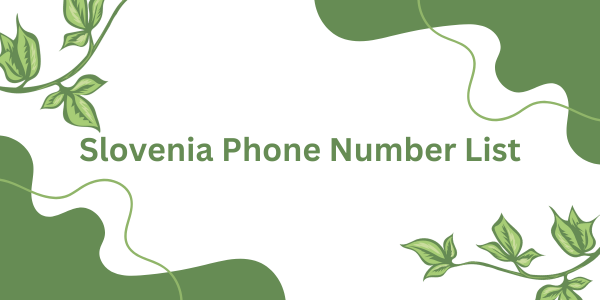|
|
Slovenia joined NATO on March 29, 2004, becoming a member of the North Atlantic Treaty Organization (NATO) as part of the alliance's largest single round of expansion. This was a significant milestone for Slovenia, as it underscored its commitment to integration into Western political and military alliances and its aspirations to align with democratic values and security stability.
Path to NATO Membership
Slovenia’s journey toward joining NATO was a reflection of its post-independence Slovenia Phone Number List efforts to integrate into European and Western institutions. After gaining independence in 1991, Slovenia focused on modernizing its democratic institutions, stabilizing its economy, and fostering strong international partnerships. The goal of joining NATO was part of a broader vision of ensuring national security, strengthening democratic institutions, and building strategic partnerships with Western European and North American allies.
Slovenia applied for NATO membership in 1999, demonstrating its commitment to contributing to collective defense and participating in international security. The country engaged in reforms and cooperation with NATO, focusing on military modernization, democratic governance, and aligning its defense policies with the goals of the alliance.
NATO’s 2004 Expansion
The March 29, 2004, accession ceremony saw Slovenia join NATO along with six other countries: Bulgaria, Estonia, Latvia, Lithuania, Romania, and Slovakia. This round of expansion marked NATO’s commitment to welcoming former Eastern Bloc countries and post-communist democracies into its alliance, emphasizing stability and shared security in Central and Eastern Europe.

The accession of these nations was a response to their successful transitions to democracy, their willingness to embrace NATO’s core principles, and their military reforms.
Significance of Membership
Joining NATO provided Slovenia with several benefits:
Security Guarantee: NATO’s Article 5 mutual defense clause ensures that if a member nation is attacked, other members are obligated to assist in its defense.
Political and Military Reforms: NATO membership spurred Slovenia to strengthen its military, modernize its institutions, and improve democratic governance.
Integration into European and Transatlantic Structures: Joining NATO was a crucial step in Slovenia’s broader goal of integrating into the European Union and other international organizations.
Slovenia's NATO membership has since allowed it to contribute to international peacekeeping efforts, participate in joint military operations, and engage in collective security initiatives.
Conclusion
By joining NATO in 2004, Slovenia became part of a strong and strategic alliance that promotes stability, cooperation, and peace. This membership symbolized Slovenia’s successful democratic transition and its commitment to supporting international security and democratic values. Since then, Slovenia has actively participated in NATO operations and continues to strengthen its role within the alliance.
|
|